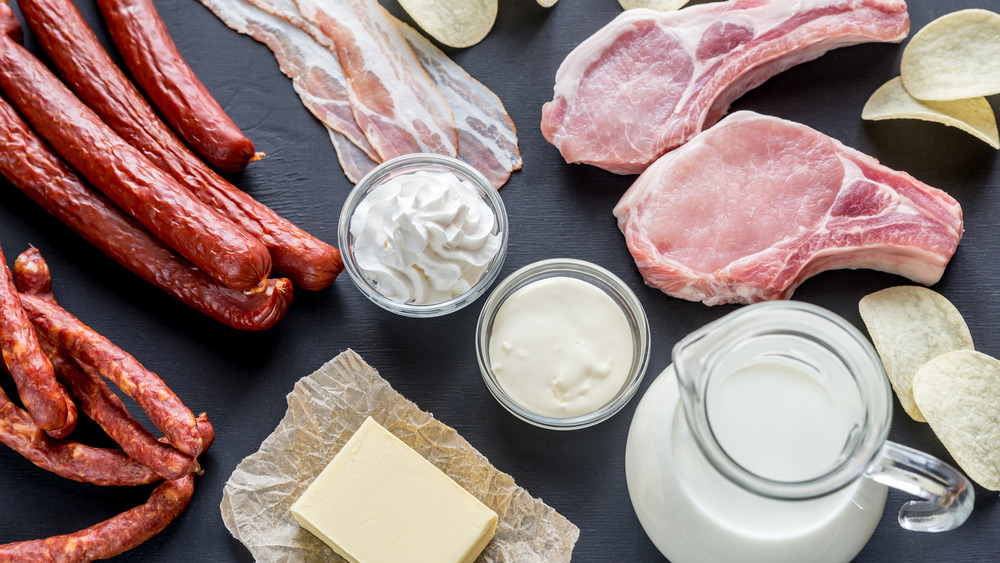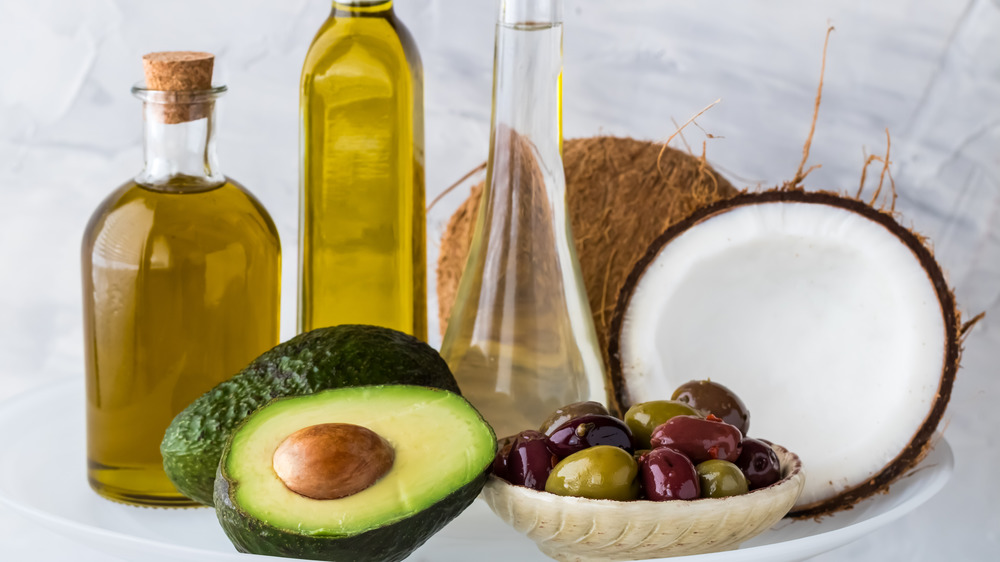The Real Difference Between Saturated And Unsaturated Fats
Fats have a bad reputation, but you need them. Dietary fats help you absorb some nutrients, protect your organs, produce essential hormones, keep your body warm, support cell growth, and give you energy, according to the American Heart Association (AHA).
Between saturated and unsaturated fat, one might be better for you than the other. This article will focus on saturated fats first, then unsaturated.
Saturated fats are found in fatty pieces of beef and lamb, some pork, chicken with skin, dairy products (cheese, shortening, whole milk, two percent milk, butter, and cream), lard, palm oil, and coconut oil (via the AHA).
A 2014 review and meta-analysis involving over 650,000 participants found no link between saturated fat intake and heart disease risk. However, a 2015 study with 7,038 participants found that saturated fat intake could increase the risk of heart disease. According to Healthline, a 2010 study found that eating grain-fed beef can elevate cholesterol levels more than grass-fed beef, and that could be because grass-fed beef usually has less fat.
More research is needed on whether saturated fats increase the risk of heart disease and cholesterol. In the meantime, keep your saturated fat intake to five to six percent of your daily calories, according to the AHA. For example, if you have 2,000 calories a day, you should only have about 13 grams of saturated fat daily.
Saturated fats vs. unsaturated fats
There are two types of unsaturated fats — monounsaturated fats and polyunsaturated fats. Monounsaturated fats come from most seeds and nuts, peanut butter, avocados, sesame oil, olive oil, peanut oil, canola oil, and safflower oil. According to the AHA, polyunsaturated fats come from soybeans, tofu, sunflower seeds, walnuts, sunflower oil, corn oil, and soybean oil.
A 2017 systematic review and meta-analysis found that replacing saturated fats with polyunsaturated fats may reduce cardiovascular disease risk. A 2016 study found that heating vegetable oils can reduce their antioxidant properties and increase free radicals that can be bad for your health. Avoid overheating vegetable oils to retain their nutritional content.
Both monounsaturated and polyunsaturated fats are a good source of omega-3 and omega-6 fatty acids, which can help reduce bad cholesterol, stroke risk, and heart disease risk. They are also rich in vitamin E, an antioxidant most Americans don't get enough of.
Calorie content is the same in all fat types: nine calories per gram (prior to added ingredients), according to the AHA. Therefore, it's the health benefits unsaturated fats provide that are the reason they're considered "good" fats, and saturated fats are considered "bad" fats.


